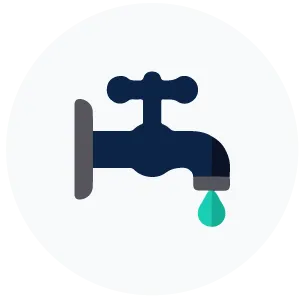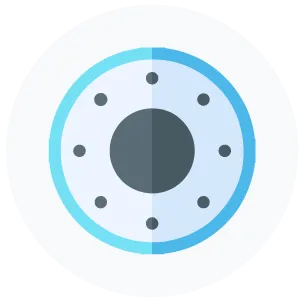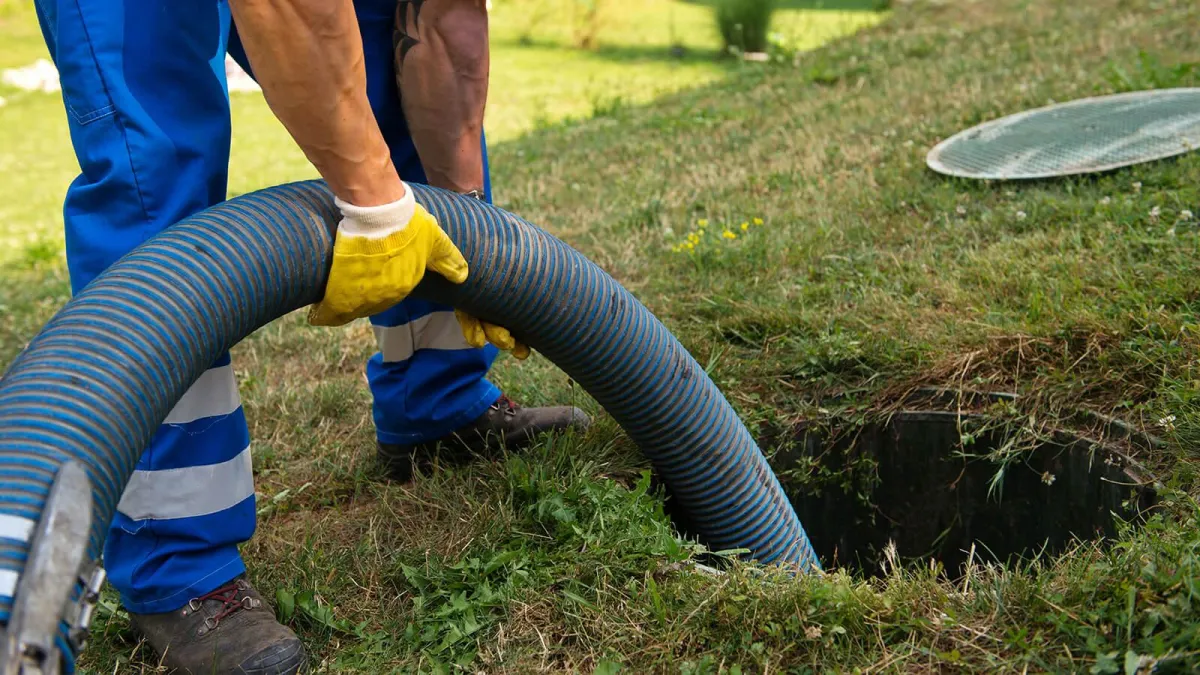Got Questions?
Got Questions?

24/7 Plumbing
Licensed Jacksonville plumbers to help you out for any disaster fast. 24 hour plumber Jacksonville Fl!

Repiping
We can repipe your entire home with our partial or whole home repiping!

Drain Cleaning
If you have any plumbing stoppages, we can inspect and clean your drains!

Water Heaters
Installation of service for any style of water heater: Gas or electric, tank or tankless!

Inspections
For any of your plumbing or septic needs. Includes sewer camera inspections!
How to Know When Septic Tank Needs Pumping: Essential Signs to Watch For

Have you ever walked into your bathroom and noticed an unpleasant smell? Or maybe your drains are moving slower than usual?
Learning how to know when septic tank needs pumping can save you from costly repairs and uncomfortable situations. We're here to help you understand the signs before they become serious problems.
How Your Septic System Works
Before learning how to know when septic tank needs pumping, let's understand your system. According to the National Environmental Services Center, a septic system has four main components:
Tank for collecting waste
Baffle system for separation
Drain field for filtration
Soil for final treatment
Understanding these parts helps you spot problems early.
Why Regular Pumping Matters
Before we dive into how do you know when your septic tank is full, let's understand why this matters. According to the Environmental Protection Agency (EPA), regular maintenance is crucial for:
Protecting your family's health
Preserving your property value
Safeguarding the environment
Avoiding expensive repairs
Meeting local regulations
Clear Warning Signs
Indoor Signs
When wondering how to tell if septic tank is full, watch for these indoor signals:
Slow Drains
Bathroom sinks drain slowly
Shower water pools at your feet
Toilets take longer to flush
Unusual Sounds
Gurgling pipes
Bubbling toilets
Strange sink noises
Odors
Sewage smells in bathrooms
Basement odors
Kitchen sink smells
Outdoor Signs
Here's how do i know if my septic tank is full by checking outside:
Yard Conditions
Wet spots in grass
Unusually green patches
Soggy soil around tank
System Alerts
Sewage backups
Alarm sounds (if equipped)
Visible overflow
Professional Inspection Points
The National Association of Wastewater Technicians recommends checking these areas:
Sludge levels
Scum layer thickness
Baffle condition
Pipe integrity
Drain field status
Timing Guidelines
Learn how to know if septic tank is full based on these factors:
Household Size
1-2 people: Every 3-5 years
3-4 people: Every 2-3 years
5+ people: Every 1-2 years
Usage Patterns
Heavy water use
Garbage disposal use
Frequent guests
Home business operation
Prevention Tips
Avoid early pumping needs with these practices:
Water Conservation
Fix leaky faucets
Install efficient fixtures
Space out laundry loads
Take shorter showers
Proper Disposal
No grease down drains
Avoid harmful chemicals
Limit garbage disposal use
Use septic-safe products
Warning Signs Timeline
Understanding how to know when septic tank needs pumping involves timing:
Early Warning Signs
Slower drains
Occasional odors
Minor gurgling
Urgent Signs
Multiple slow drains
Constant odors
Sewage backups
Special Situations to Consider
When determining how do you know when your septic tank is full, these situations require extra attention:
Home-Based Businesses
Beauty salons
Daycare centers
Home restaurants
Pet grooming services
Special Events
Large parties
Family gatherings
Holiday celebrations
Extended guest stays
Home Renovations
Additional bathrooms
New appliances
Kitchen updates
Added bedrooms
Professional Assessment Tools
Modern methods to check how do you know when your septic tank is full:
Electronic sensors
Camera inspections
Sludge judges
Dye testing
Core sampling
Understanding Test Results
When professionals check how to tell if septic tank is full, they measure:
Sludge Depth
Normal: Less than 1/3 tank depth
Warning: Between 1/3 and 1/2
Critical: Over 1/2 tank depth
Scum Layer
Healthy: 2-3 inches
Concerning: 4-6 inches
Problem: Over 6 inches
Liquid Level
Normal: Below outlet pipe
Warning: At outlet level
Critical: Above outlet
Common Mistakes to Avoid
Don't ignore these when checking how to tell if septic tank is full:
Waiting for problems
Ignoring minor signs
Using harmful products
Skipping inspections
Forgetting maintenance dates
Record Keeping
Track these details:
Last pumping date
Inspection results
Repair history
Usage patterns
Maintenance schedule
Emergency Situations
Know when to call immediately:
Sewage backups
System alarms
Multiple drain failures
Strong odors
Pooling sewage
Working with Professionals
When checking how do i know if my septic tank is full, work effectively with professionals:
Before the Visit
Locate your tank
Clear access points
Gather maintenance records
List any concerns
Note recent issues
During Inspection
Ask questions
Watch the process
Take notes
Request photos
Understand recommendations
After Service
Get written report
Schedule next visit
Update records
Implement suggestions
Monitor system
Seasonal Considerations
Different seasons affect how do i know if my septic tank is full:
Spring
Check for winter damage
Monitor spring thaw
Inspect drain field
Summer
Watch for odors
Check grass patterns
Monitor usage increase
Fall
Prepare for winter
Final inspections
Document conditions
Winter
Monitor snow cover
Watch for freezing
Limited accessibility
Cost Considerations
Regular maintenance saves money:
Routine pumping: $250-500
Emergency service: $500-1000
System repairs: $1000-5000
Full replacement: $10000+
Conclusion
Understanding how to know when septic tank needs pumping is crucial for maintaining your home's health and value. Watch for the warning signs we've discussed, maintain good records, and don't hesitate to call professionals when needed. Remember, regular maintenance is always cheaper than emergency repairs.
Keep this guide handy and check it whenever you notice changes in your septic system's performance. A well-maintained septic system can last for decades, but only with proper care and attention to these important signals.
Contact
Presto Plumbing LLC
6509 Trade Center Drive
Jacksonville, FL 32254


